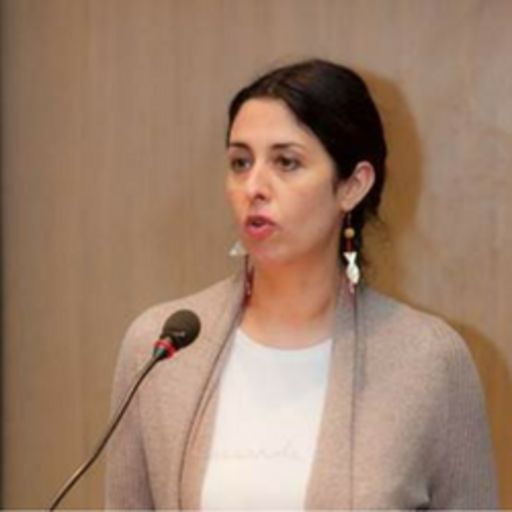Evaluating Quality of Retraction Notices of Health and Life Science Articles Published by Authors Affiliated to Brazilian Institutions: a Systematic Review
Aim
To present and discuss the results of a systematic review that aimed to investigate the main reason for retractions of medical and life science research of authors affiliated to Brazilian academic institutions. For it, reason for retractions, citation of retracted publications and quality, availability and accessibility to data regarding retracted papers from the publishers are described considering the Committee on Publication Ethics – COPE recommendations.
Methods
Two independent reviewers searched for retracted articles since 2004 at PUBMED, Web of Science, BVS and Google Scholar databases. Indexed keywords from MeSH and DeCS in Portuguese, English or Spanish were used. Data was also collected from the Retraction Watch website (www.retractionwatch.com). This study was registered at PROSPERO systematic review database (CRD42017071647) and was published at PLOS ONE this year (1).
Results and Discussion
A final sample of 65 articles was retrieved; 20 were published at national and 35 international journals. Among the retrieved articles, plagiarism was the main reason for retraction (60%). Missing data were found in 57% of the retraction notices representing a limitation to this review. Missing information regarding reason for retraction (7%), who requested the retraction (3%) and endorsement by the authors (38.4%) were part of the retrieved articles. Retraction warnings such as a withdrawn/retracted red sign over the article were also nonexistent (37%). Measures to ensure research integrity has been widely discussed due to its social, economic and scientific impact (1,2,3,4). Most of the investigations on this subject focuses on the role of authors and institutions to promote research transparency, however research integrity is reinforced by editorial politics for publication of articles or retraction notices when needed. Hence, scientific journals play an important role to promote and reassure integrity. Complete information on retraction notices contributes to scientific transparency, avoids reproduction of unreliable research (5). Still, some retractions are vague and don’t comply with COPE recommendations. Despite the reasons that lead to the publication of incomplete retractions, we found complete and clear information at several retraction notices. This illustrates the disparities of policies and attitudes towards research mistakes. Regarding reasons for retraction, previous studies have shown that fraud and error have accounted for most of the retractions of biomedical articles (6,7); however, the present review revealed a larger number of retractions due to plagiarism. It is known by previous studies (8) that articles are still cited after been retracted. This systematic review found that 63% of the retracted articles was still cited as legit. More investigations are needed to understand the underlying causes of research misconduct and the continue citation of retracted articles as reliable. Brazil is a member of the BRICS (Brazil, Russia, India, China, South Africa) cooperative group that is responsible for some of the 1% most cited publications in the world (8). The rise on retracted publications accompanied increase on scientific production of the country with international partners. The majority of the retracted articles retrieved by this study were from public university and therefore, the researchers were public funded. This systematic review was the first to address the theme for this group considering the Brazilian context. Its results contributes for the discussion of means to improve research quality and reliability in the country, as well as to support more research on research.
Conclusion
The majority of the retracted publications retrieved by this systematic review did not complied COPE recommendations. It’s important to engage all scientific community, including publishers and editors at research integrity discussions in order to promote transparency at all levels of research: from it’s idealization, planning, execution, report, to possible retractions. Additionally, plagiarism was the main cause of retractions of health and life science publications of authors affiliated to Brazilian institutions. Coordinated action between institutions, funders, publishers and researchers is important to avoid scientific flaws. These results will pave the way for future research on the theme in order to understand the underlying causes of research integrity breaches and therefore, will contribute for a scientific production with higher quality and reliability.
 Gwen FranckEIFL, Lithuania
Gwen FranckEIFL, LithuaniaGwen Franck is consultant and facilitator, interested in the ‘hands on’ aspects of Open Science such open access publishing, self-archiving… More →
 Victoria TsoukalaEuropean Commission
Victoria TsoukalaEuropean CommissionVictoria Tsoukala works as a Policy Officer in the European Commission, DG RTD.G2: Open Science, in Secondment from her position at the… More →
 Adriaan van der WeelLeiden University
Adriaan van der WeelLeiden UniversityAdriaan van der Weel is Bohn extraordinary professor of Modern Dutch Book History at the University of Leiden and lecturer in Book and… More →
 Sami SyrjämäkiFederation of Finnish Learned Societies
Sami SyrjämäkiFederation of Finnish Learned SocietiesDr Sami Syrjämäki is the head of publications at the Federation of Finnish Learned Societies. His expert work focuses on science policies… More →
 Thed van LeeuwenLeiden University
Thed van LeeuwenLeiden UniversityThed van Leeuwen is a senior researcher at the Centre for Science and Technology Studies (CWTS) of Leiden University in the Netherlands. As… More →
 Andrei RostovtsevDissernet, Russia
Andrei RostovtsevDissernet, RussiaProf Andrei Rostovtsev is a Russian physicist, doctor of physical and mathematical sciences. He graduated from the National Research Nuclear… More →
 Vanessa ProudmanSPARC Europe
Vanessa ProudmanSPARC EuropeVanessa Proudman is Director of SPARC Europe; she is working to make Open the default in Europe. Vanessa has 20 years’ international… More →
 Ana MarušićUniversity of Split
Ana MarušićUniversity of SplitAna Marušić is Professor of Anatomy and Chair of the Department of Research in Biomedicine and Health at the University of Split School of… More →
 Alen VodopijevecRuđer Bošković Institute
Alen VodopijevecRuđer Bošković InstituteMSc Alen Vodopijevec obtained his diploma in 2003 at the University of Zagreb, Faculty of Social Sciences and Humanities, and currently is… More →
- Anita Pavić Pintarić
 Damien VannsonThunken
Damien VannsonThunkenBuilder at heart, driven by the satisfaction of turning shower thoughts and back-of-the-envelope plans into full-fledged, user-friendly… More →
 Danijel GudeljUniversity of Zagreb
Danijel GudeljUniversity of ZagrebDanijel Gudelj is M.A. of sociology and croatology, graduated at Centre for Croatian Studies, University of Zagreb. Currently, he is a… More →
 Blaž RebernjakUniversity of Zagreb
Blaž RebernjakUniversity of ZagrebBlaž Rebernjak was born in Zagreb in 1983, where he finished primary and secondary schools. In 2007 he obtained his MA and in 2013 his PhD… More →
- Evgenia Arh
 Drahomira CuparUniversity of Zadar
Drahomira CuparUniversity of ZadarDrahomira Cupar, Phd, is an assistant professor at the University of Zadar, Department of Information Sciences. She obtained her PhD in… More →
 Elizabeth WagerSideview
Elizabeth WagerSideviewElizabeth (Liz) Wager, PhD is a freelance consultant and trainer who has worked on six continents. She chaired the Committee on Publication… More →
 Filip HorvatUniversity of Rijeka
Filip HorvatUniversity of RijekaFilip Horvat is a librarian at the Faculty of Civil Engineering, University of Rijeka. He received his Master’s degree in Information… More →
 Goranka MitrovićNational and University Library in Zagreb
Goranka MitrovićNational and University Library in ZagrebGoranka Mitrović, senior librarian, works at the National and University Library in Zagreb, Croatia (NUL) since 1993. Her research interest… More →
 Draženko CeljakUniversity Computing Centre
Draženko CeljakUniversity Computing CentreMSc Draženko Celjak is the head of data services at SRCE – University of Zagreb University Computing Centre. He coordinates and leads the… More →
 Iva Melinščak ZlodiUniversity of Zagreb
Iva Melinščak ZlodiUniversity of ZagrebIva Melinščak Zlodi works as an e-resources librarian at the Library of the University of Zagreb Faculty of Humanities and Social Sciences… More →
 Ivana MajerUniversity of Zagreb
Ivana MajerUniversity of ZagrebIvana Majer graduated from the Faculty of Humanities and Social Sciences at the University of Zagreb, and got her degree in Croatian… More →
 Irena KranjecUniversity of Zagreb
Irena KranjecUniversity of ZagrebIrena Kranjec works as a subject librarian for information sciences at the Library of the Faculty of Humanities and Social Sciences… More →
 Jasminka MaravićCARNet Department for Education Support
Jasminka MaravićCARNet Department for Education SupportJasminka Maravić is Project Manager at CARNet Department for Education Support. During her 14 years in CARNet she has been involved in… More →
 Krešimir ZauderUniversity of Zadar
Krešimir ZauderUniversity of ZadarKrešimir Zauder was born in Zagreb, Croatia in 1980. He graduated Information science and English language and literature in 2006. In 201… More →
 Jure TriglavCollaborative Knowledge Foundation
Jure TriglavCollaborative Knowledge FoundationJure is the lead developer at the Collaborative Knowledge Foundation, where he develops the PubSweet framework and supports its community. More →
- Josipa Zetović
 Kristina RomićNational and University Library in Zagreb
Kristina RomićNational and University Library in ZagrebKristina Romić works at the Acquisition Department, National and University Library in Zagreb, Croatia. She graduated from the Faculty of… More →
- Ksenija Baždarić
 Ksenija Švenda RadeljakUniversity of Zagreb
Ksenija Švenda RadeljakUniversity of ZagrebKsenija Švenda Radeljak is employed at the Library of Department of Social Work at the Faculty of Law University in Zagreb. The areas of her… More →
 Linda SīleUniversity of Antwerp
Linda SīleUniversity of AntwerpLinda Sīle is doctoral student at the University of Antwerp within the Centre for R&D Monitoring (ECOOM). My current work spans somewhat… More →
 Lovela Machala PoplašenUniversity of Zagreb
Lovela Machala PoplašenUniversity of ZagrebLovela Machala Poplašen is a head librarian at the Andrija Štampar Library, School of Public Health, School of Medicine, University of… More →
- Ljiljana Poljak
 Luc BorutaThunken
Luc BorutaThunkenPh.D. in computational linguistics, natural language processor, interested in linked data and linguistic diversity. In previous lives, Luc… More →
 Ljiljana Jertec MusapSRCE – University Computing Centre, University of Zagreb
Ljiljana Jertec MusapSRCE – University Computing Centre, University of ZagrebMSc Ljiljana Jertec is a librarian and computer specialist at SRCE – University of Zagreb University Computing Centre. She has a Master’s… More →
 Lucija VejmelkaUniversity of Zagreb
Lucija VejmelkaUniversity of ZagrebLucija Vejmelka is an assistant professor at the University of Zagreb, Faculty of Law, Department of Social Works, where she leads the… More →
- Marijana Briški Gudelj
 Marijana GlavicaUniversity of Zagreb
Marijana GlavicaUniversity of ZagrebMSc Marijana Glavica works as a systems librarian at the University of Zagreb Faculty of Humanities and Social Sciences Library, where she… More →
 Marina Cvitanušić BrečićCroatian Agency for Science and Higher Education
Marina Cvitanušić BrečićCroatian Agency for Science and Higher EducationMarina Cvitanušić Brečić works at the Analytics and Statistics Department of the Croatian Agency for Science and Higher Education (ASHE… More →
 Marina GrubišićCroatian Agency for Science and Higher Education
Marina GrubišićCroatian Agency for Science and Higher EducationMarina Grubišić is the head of the Analytics and Statistics Department of the Croatian Agency for Science and Higher Education (ASHE). She… More →
 Matko MarušićUniversity of Split
Matko MarušićUniversity of SplitMatko Marušić is Professor Emeritus at the University of Split, Split, Croatia. He was a Professor at Medical Schools (in Zagreb and Split… More →
- Nicolas Robinson-Garcia
- Neven Pintarić
 Paulin RibbeOpenEdition
Paulin RibbeOpenEditionPaulin Ribbe is Project Manager for the OPERAS infrastructure at OpenEdition (France, Marseille - CNRS, AMU, EHESS, Avignon Univ.). He holds… More →
 Radovan VranaUniversity of Zagreb
Radovan VranaUniversity of ZagrebBorn in Zagreb, Croatia. Primary and secondary education completed in Zagreb. Croatia. Graduated information sciences and the English… More →
 Rafaelly StavaleUniversity of Brasília
Rafaelly StavaleUniversity of BrasíliaRafaelly Stavale is a current student of Nursing at Universidade de Brasília – UnB. She has recently completed the Principles and Practices… More →
 Olga KirillovaAssociation of Science Editors and Publishers (ASEP), Moscow, Russia
Olga KirillovaAssociation of Science Editors and Publishers (ASEP), Moscow, RussiaOlga V. Kirillova, Candidate of Science (Engineering, 2004), the President of the Association of Science Editors and Publishers (ASEP, since… More →
 Pierre MounierOpenEdition
Pierre MounierOpenEditionPierre Mounier is deputy director of OpenEdition , a comprehensive infrastructure based in France for open access publication and… More →
 Rodrigo CostasLeiden University
Rodrigo CostasLeiden UniversityRodrigo Costas is an experienced researcher in the field of information science and bibliometrics. With a PhD in Library and Information… More →
 Tihana RubićUniversity of Zagreb
Tihana RubićUniversity of ZagrebTihana Rubić is an assistant professor at the Department of Ethnology and Cultural Anthropology, Faculty of Humanities and Social Sciences… More →
 Vicko TomićUniversity of Split
Vicko TomićUniversity of SplitVicko Tomić is a research assistant at the Department of Research in Biomedicine and Health at the University of Split School of Medicine… More →
 Vanessa FairhurstCrossref
Vanessa FairhurstCrossrefVanessa Fairhurst joined Crossref in 2017 and is based at the Oxford office. As Community Outreach Manager, her role involves working… More →
 Želimir KurtanjekUniversity of Zagreb
Želimir KurtanjekUniversity of ZagrebŽelimir Kurtanjek is a retired professor of chemical engineering with an interest in biotechnology, biostatistics and big data analytics… More →
 Vlatka BožičevićUniversity of Zagreb
Vlatka BožičevićUniversity of ZagrebVlatka Božičević gratuated from Religious Pedagogy and Catechetics at the Catholic Faculty of Theology University of Zagreb and the… More →
- Željka Salopek
 Zoran VelagićUniversity of Osijek
Zoran VelagićUniversity of OsijekZoran Velagić is a professor of book history and publishing studies at the University of Osijek, Faculty of Humanities and Social Sciences… More →